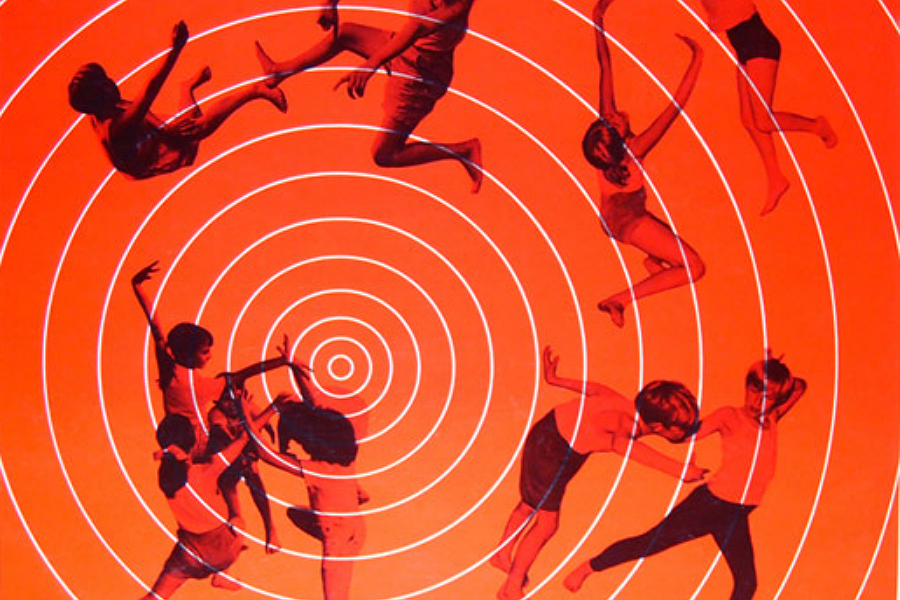A New Sound: Delia Darlings

C James Fagan on Daphne Oram, The Radiophonic Workshop and Delia Derbyshire, electronic innovator…
There’s something evocative about the name The Radiophonic Workshop that conjures up an image of people literally picking out radio-waves from the ether and manipulating them into new sounds, performing acts of sonic alchemy. If this makes it sound like the product of someone’s imagination, the reality is rather more simple: it was a department set up within the BBC in 1958 to supply the growing number of radio programmes with sound effects and music.
When it’s put that way it sounds pretty ordinary, a department set up to service a specific function. But what seems to provide The Radiophonic Workshop with a sense of magic probably begins with the techniques they employed. Taking inspiration from musiqe contcrete, they would seek out sounds to mold into something else – something other.
Consider this: the workshop was bringing avant-grade techniques used by the likes of Stockhausen and Ligeti to the masses while the Beatles where still bashing out their Beat music. Plus, the existence of The Radiophonic Workshop seemed to coincide with the head long post-war progress to the future. Theirs was a soundtrack to the white heat of technology.
Where did this all spring from? One of the workshop’s key figures was Daphne Oram, fascinated by sound and music; even at the age of ten she had plans to make an instrument capable of making any sound. Oram was also raised in a household practicing spiritualism, which might provide a key to understanding the beginnings of her interest in vibrational phenomena. Whatever their origins Oram’s ambitions led her to approach the BBC with a proposal to set up an experimental music workshop, even if that wasn’t quite what the conservative BBC had in mind.
So in 1958, and with a very British sense of comprise, the Radiophonic Workshop was founded. A year later Daphne Oram, thwarted in her ambitions to set up an English counterpart to the French GRMC, left the BBC, allowing her to pursue many projects (including working on the soundtrack of the film The Innocents). More importantly, she followed her ambition to create Oramics, a system of ‘drawing sound’. The result of this project now sits in the Science Museum.
In 1963 the Radiophonic Workshop would create their most well known piece, the original theme tune to Doctor Who. Though written by Ron Grainer it was up to Delia Derbyshire to create the whooshing, bubbling alien sounds which would make the theme unique. On hearing this arrangement of the theme, Grainer asked ‘Did I write that?’, to which Derbyshire replied ‘Most of it.’
Delia Derbyshire joined the Radiophonic Workshop at a time when people, especially young people, were hungry for new things, for experimentation. She quickly became the ‘popstar’ of the Radiophonic Workshop hanging out with the likes of Pink Floyd and Paul McCartney. In 1969 she also produced an album of electro-psychedelia with David Vorhaus under the name White Noise.
Derbyshire seemed to have been in the right place at the right time, but by the seventies the spirit of experimentation had fizzled out. With the development of cheaper synthesizers, the idea of spending money on large pieces of equipment and people, became less appealing. Ironically, the increase in electronic music created in-part by The Radiophonic Workshop, added to the ever-increasing sophistication of electronic instruments available to the public which eventually marked its demise. The Workshop’s end came in the 1990s during an act of cost cutting and outsourcing at the BBC.
It was an unfitting end to a remarkable group. When you look back on the history of the workshop, you see the unfortunate tendency of the British to undervalue their creative industries. The Radiophonic Workshop was created during a time when it seemed that people where working for a better world through the application of new technologies and new ideas. Maybe we can take comfort in Matthew Herbert’s quasi-resurrection of the workshop using the internet to create a new centre for creativity away from the conservative institutions. There’s also hope that it will create the opportunities for sonic experimentation that Daphne Oram originally intended.
The Delian Mode (featuring a Q&A with director Kara Blake) screens Wednesday 16th January 6.30pm @ FACT
Image courtesy BBC Movement, Mime and Music series





